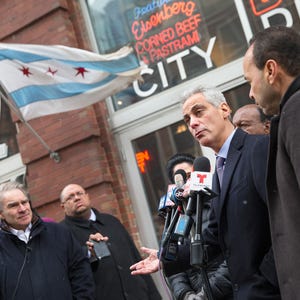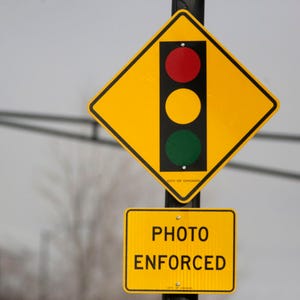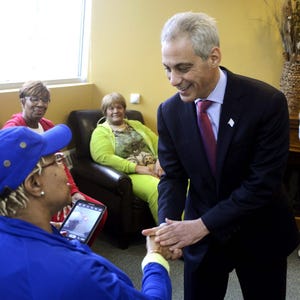CHICAGO—Voters head to the polls Tuesday to decide whether to give Mayor Rahm Emanuel another four years in office or offer challenger Cook County Commissioner Jesus "Chuy" Garcia a chance to lead the nation's third largest city as it tries to pull itself out of a deep financial crisis.
Emanuel and Garcia were forced into a runoff after none of five candidates vying for the mayor's office were able to secure a majority of the vote in February's general election.
Whoever wins the runoff will face the task of righting a city mired in some monumental problems. Chicago faces $20 billion in unmet pension obligations, a sinking credit rating, and persistent violence.
Ahead of Tuesday's vote, polls showed Emanuel, a former congressman and President Obama 's first chief of staff, with a double-digit lead—a turnaround from six weeks ago when polls indicated he was knotted in a close race with Garcia.
"We have one more day, but we also have four more years," Emanuel told backers during a Monday night visit to one of his campaign offices. "We're going to rebuild this great city."
Garcia says he's certain that the race remains close, noting that polls ahead of the first-round vote significantly underestimated his support. His campaign said it would dispatch 5,000 canvassers throughout the city on Tuesday to get supporters to the polls.
"Our campaign and volunteers are ready for Tuesday," Garcia said in an interview on Monday evening. "We're going to deploy a huge army that I think will make the difference in this race."
In making his case for reelection, Emanuel has pointed to his work at expanding the school day for Chicago students, establishing full-day kindergarten, and improvements in the overall crime rate.
Emanuel has also sought to frame himself as a seasoned hand up to the task of leading the city through its financial crisis, while characterizing Garcia as out of his depth.
Garcia says that Emanuel has exacerbated the city's financial problems. He's also criticized the mayor's decision to close 50 schools and made an issue of the city's use of red light cameras, which brings Chicago millions of dollars in revenue but is widely scorned by residents. Emanuel also tangled with the Chicago Teachers Union , which called its first strike in 25 years early in the mayor's term.
In recent days, Garcia has also stepped up criticism of Emanuel's handling violent crime in the city. After recording the fewest murders in five decades last year, Chicago saw homicides surge by 29% and shootings by about 40% in the first three months of 2015.
Emanuel has also faced criticism for his brusque personality. During the runoff campaign, the mayor addressed the issue in television advertisements and acknowledged his personality can rub people the wrong way in attempt.
"What Chicagoans want is transparency and accountability," Garcia said. "They want a mayor they can talk with. He has not been that mayor."
Garcia, who won 34% of the vote compared to Emanuel's 45% in the first round, was a late entrant into the mayoral race.
He agreed to throw his hat in the ring after being urged to run by Chicago Teachers Union President Karen Lewis. She considered making her own run to unseat Emanuel but opted not to after being diagnosed with brain cancer.
Garcia has vowed to hire 1,000 police officers, re-open some of the schools shuttered by Emanuel, and dismantle the red light camera system. Emanuel, whose campaign war chest is several times larger than the challenger's, has used a barrage of television ads to criticize Garcia for being vague in explaininghow he'll go about solving the city's financial crisis or pay for his new spending.
"This is a big election with clear choices and that there's a lot at stake for the city of Chicago ," Emanuel told reporters after stumping at popular restaurant on Chicago's North Side on Monday.
The mayoral runoff is Chicago's first since the city switched to a nonpartisan format in the 1990s. In his first run for mayor in 2011, Emanuel managed to win the office outright in the first round with 55% of the vote.
Turnout was light for the first round of voting in February, with just 34% of eligible voters casting ballots. But election officials reported seeing a big surge in early voting for the runoff—with 142,000 voters casting ballots. About 89,000 voters cast early ballots in the first round.





0 comments:
Post a Comment